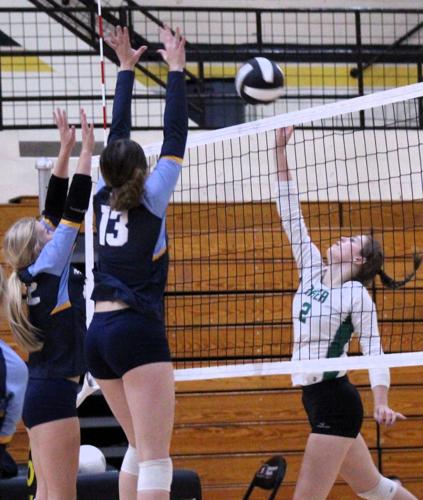To become a certified volleyball coach, you need to complete a certification program offered by recognized sports organizations or volleyball associations. These programs typically include training in coaching techniques, principles, and strategies specific to the sport of volleyball.
Table of Contents
ToggleResearching The Certification Process
When aspiring to become a volleyball coach, it is crucial to understand the certification process. Obtaining a volleyball coach certification not only enhances your coaching skills but also adds credibility to your profile. Researching the certification process allows you to navigate through the different requirements and options available, ensuring you choose the most suitable certification program. This section will guide you through the necessary steps involved in researching the certification process.
Understanding The Requirements For Volleyball Coach Certification
Before delving into the search for the right certification program, it is essential to have a clear understanding of the requirements needed to become a certified volleyball coach. The exact requirements can vary depending on factors such as the level of coaching you plan to pursue and the organization granting the certification. However, there are some general prerequisites that are commonly expected by most certification programs:
- A minimum age requirement, typically 18 years or older, to ensure maturity and responsible coaching.
- Completion of relevant coaching education courses, which may involve topics like sports science, injury prevention, ethics, and coaching principles.
- Practical coaching experience, is often fulfilled by working with a team or assisting an experienced coach.
- Adherence to a code of conduct, promoting sportsmanship, fair play, and a positive coaching environment.
Researching Different Certification Programs And Organizations
Now that you have a grasp of the requirements, it’s time to explore the variety of certification programs and organizations available for volleyball coaches. By conducting thorough research, you can find a program that aligns with your coaching goals and values. Some reputable organizations that offer volleyball coach certifications include:
| Organization | Description |
|---|---|
| USA Volleyball | The national governing body for volleyball in the United States, offering comprehensive coaching education and certification programs. |
| Fédération Internationale de Volleyball (FIVB) | The international governing body for volleyball, providing global coaching courses and certifications. |
| American Coaching Effectiveness Program (ACEP) | A coaching education organization that offers volleyball-specific certification courses. |
These organizations’ websites serve as valuable resources for further information about their certification programs, including course content, duration, and costs. Additionally, you may also find testimonials or reviews from coaches who have completed the certifications, which can help you gauge the programs’ quality and effectiveness.
Comparing The Benefits And Reputation Of Different Certification Programs
Once you have identified several certification programs of interest, it’s important to compare their benefits and reputation. Consider factors such as:
- The recognition and acceptance of the certification within the volleyball community, both locally and nationally.
- The level of instruction and expertise offered by the certification program’s faculty and staff.
- Any specific additional resources or ongoing professional development opportunities provided by the program.
- The credibility and reputation of the organization or governing body issuing the certification.
By thoroughly comparing the benefits and reputation of different certification programs, you can make an informed decision that aligns with your goals as a volleyball coach.
Meeting The Educational And Experience Requirements
Meeting the educational and experience requirements is essential for aspiring volleyball coaches to establish themselves as certified professionals. This involves gaining knowledge of volleyball rules, strategies, and coaching techniques as well as building experience through coaching at different levels, such as youth, school, and club teams. Additionally, obtaining relevant educational qualifications and certifications enhances the coach’s credibility and expertise in the field.
Gaining Knowledge Of Volleyball Rules, Strategies, And Coaching Techniques
Becoming a certified volleyball coach requires a deep understanding of the game, including its rules, strategies, and coaching techniques. Coaches must be able to apply these principles effectively to guide their teams toward success. Some important aspects to consider when gaining knowledge in this area include:
- Studying the official rulebook: Coaches must familiarize themselves with the rules set by the governing bodies of volleyball, such as FIVB (Fédération Internationale de Volleyball) and USA Volleyball. This includes understanding the scoring system, player positions, substitution rules, and more.
- Attending coaching clinics and workshops: Coaches can enhance their knowledge and practical skills by participating in coaching clinics and workshops. These events often feature experienced trainers who can provide valuable insights into effective coaching techniques, game strategies, and player development.
- Watching and analyzing matches: Regularly watching matches, whether live or recorded, can help coaches observe different strategies and techniques used by successful teams and players. This analysis can be used to adapt and improve their own coaching methods.
Building Experience Through Coaching At Different Levels (youth, School, Club)
Building coaching experience at various levels is crucial for developing a well-rounded understanding of the game and gaining the necessary expertise. Coaches can gain valuable experience by working with youth, school, and club teams, each providing unique challenges and opportunities for growth. Here’s how coaches can build experience at different levels:
| Level | Experience-building opportunities |
|---|---|
| Youth teams |
|
| School teams |
|
| Club teams |
|
Obtaining Relevant Educational Qualifications And Certifications
Acquiring education qualifications and certifications further strengthens a volleyball coach’s credibility and professional standing. These credentials validate the coach’s expertise and demonstrate a commitment to continuous learning and improvement. Some important qualifications and certifications for volleyball coaches include:
- Certified Volleyball Coach (CVC): Offered by reputable organizations such as USA Volleyball, the CVC certification validates a coach’s competency in various coaching principles, strategies, and safety procedures.
- Coaching Accreditation Program (CAP): The CAP program, also provided by USA Volleyball, offers different levels of certification. Each level focuses on specific aspects of coaching, ranging from beginner to advanced levels.
- Higher education degrees: Pursuing a bachelor’s or master’s degree in sports coaching, physical education, or a related field can provide coaches with in-depth knowledge of coaching theories, sports psychology, and player development.
- CPR and First Aid certifications: Coaches should also consider obtaining CPR and First Aid certifications to ensure they are prepared to handle any emergencies on the court.
By meeting the educational and experience requirements, aspiring volleyball coaches can position themselves as highly qualified professionals in the industry. The combination of knowledge, hands-on experience, and relevant certifications is crucial for coaching success and fostering player development.
Choosing The Right Certification Program
If you aspire to become a certified volleyball coach, choosing the right certification program is an essential step toward achieving your goal. With numerous options available, it’s important to evaluate the curriculum, course structure, cost, and duration of each program to make an informed decision. Additionally, seeking recommendations and feedback from experienced volleyball coaches can provide valuable insights. In this blog post, we will guide you through each aspect to help you choose the certification program that best suits your needs and sets you on the path to success.
Evaluating The Curriculum And Course Structure Of Different Certification Programs
When selecting a certification program, it’s crucial to evaluate the curriculum and course structure offered by different providers. A comprehensive curriculum should cover the fundamental principles, techniques, and strategies of coaching volleyball. Look for programs that include theoretical knowledge about the sport, as well as practical training sessions and on-field experience. This ensures that you gain a well-rounded understanding of how to effectively coach and develop players.
To evaluate the curriculum and course structure, consider the following factors:
- Course modules: Check if the program covers topics such as team management, player development, game strategy, injury prevention, and sports psychology. A diverse range of modules ensures that you acquire the necessary knowledge and skills to excel as a coach.
- Instructor Expertise: Research the qualifications and experience of the instructors delivering the program. It’s important to learn from professionals who have a strong background in volleyball coaching and can provide valuable insights.
- Practical training: Look for programs that offer hands-on training sessions and opportunities to observe or assist experienced coaches during practice sessions or matches. Practical experience is crucial in reinforcing the theoretical concepts learned.
Considering The Cost And Duration Of The Certification Program
Cost and duration are practical considerations when choosing a certification program. Assess the financial investment required for the program and ensure it aligns with your budget. While cost is important, also keep in mind that quality education often comes at a price. Look for programs that strike a balance between affordability and the value they offer.
Furthermore, consider the duration of the program. Depending on your availability and goals, you might either prefer an intensive program that can be completed quickly or a program that allows for a more gradual learning experience. Take into account your other commitments and determine which program structure would best suit your lifestyle and schedule.
Seeking Recommendations And Feedback From Experienced Volleyball Coaches
One of the most effective ways to gauge the quality and reputation of a certification program is by seeking recommendations and feedback from experienced volleyball coaches. Reach out to coaches in your network, attend coaching conferences, or seek advice from local volleyball associations. Experienced coaches can provide valuable insights into the credibility, relevance, and effectiveness of different certification programs.
When seeking recommendations, consider the following:
- Ask about their personal experiences with specific certification programs.
- Inquire about the strengths and weaknesses of each program they have encountered, allowing you to make an informed decision based on their feedback.
- Consider seeking recommendations from coaches who share a similar coaching philosophy or have achieved success in areas you aspire to specialize in.
By evaluating the curriculum and course structure, considering the cost and duration, and seeking recommendations from experienced volleyball coaches, you can make a well-informed decision when choosing the right certification program. Remember, opting for a program that aligns with your goals, budget, and learning style will provide a solid foundation for your coaching career.
Preparing For The Certification Exam
Once you have decided to pursue a career as a certified volleyball coach, the next step is to prepare for the certification exam. This exam is designed to test your knowledge and skills in various aspects of coaching, so it is essential to familiarize yourself with the exam format and content, utilize study materials and resources provided by the certification program, practice sample questions, and take mock exams to assess your readiness. Here are some essential steps to help you prepare effectively.
Familiarizing Yourself With The Exam Format And Content
To increase your chances of success in the certification exam, it is crucial to understand the format and content of the test. The exam may consist of multiple-choice questions, practical demonstrations, or a combination of both. Research and gather information about the specific requirements and expectations of your certification program, as the exam content may vary.
Here are some key points to consider while familiarizing yourself with the exam:
| Exam format | Exam content |
|---|---|
|
|
Utilizing Study Materials And Resources Provided By The Certification Program
The certification program you are enrolled in may offer study materials and resources to help you prepare for the exam. These materials are designed to enhance your understanding of the exam content and improve your chances of success. Make sure to access these resources and utilize them effectively. Some commonly provided materials may include:
- Textbooks and study guides
- Online courses or modules
- Video tutorials
- Practice exercises and drills
By utilizing these materials, you can gain a comprehensive understanding of the topics covered in the exam and reinforce your knowledge and skills as a volleyball coach.
Practicing Sample Questions And Taking Mock Exams To Assess Your Readiness
One of the most effective ways to prepare for the certification exam is to practice sample questions and take mock exams. These practice sessions allow you to assess your readiness, identify areas of improvement, and familiarize yourself with the exam environment.
Consider the following tips while practicing for the exam:
- Solve sample questions regularly to gauge your knowledge and understanding of the exam content.
- Set a timer to simulate the exam conditions and improve your time management skills.
- Review your answers thoroughly, seeking explanations for any incorrect responses.
- Participate in mock exams offered by your certification program or coaching associations to experience the test environment and evaluate your performance.
- Make note of any weak areas or topics that require further study and revision.
By practicing and assessing your readiness through sample questions and mock exams, you can enhance your confidence and increase your chances of passing the certification exam with flying colors.
Passing The Certification Exam
Applying Effective Study Strategies And Time Management Techniques
When it comes to passing the certification exam to become a certified volleyball coach, applying effective study strategies and managing your time wisely is crucial. By following these strategies, you can optimize your preparation and increase your chances of success.
Firstly, create a study schedule that allows you to allocate dedicated time for studying each day. This will help you maintain consistency and ensure that you cover all the necessary topics. Consider using a time management technique such as the Pomodoro Technique, where you study for a focused period, typically 25 minutes, followed by a short break. This technique can enhance your productivity and prevent burnout.
Additionally, try to make your study sessions interactive and engaging. Instead of passively reading textbooks or notes, it’s beneficial to utilize various resources such as online practice tests, instructional videos, and interactive quizzes. They not only reinforce your understanding of the material but also make your studying process more enjoyable and effective. By adopting these study strategies and time management techniques, you can optimize your preparation and enhance your chances of success in the certification exam.
Understanding The Scoring Criteria And Key Concepts Tested In The Exam
In order to pass the certification exam, it’s important to have a clear understanding of the scoring criteria and key concepts that will be tested. This knowledge will guide your preparation and enable you to focus on the most important areas.
Familiarize yourself with the exam format and scoring system. Understand the weightage given to each section or topic, so you can allocate your study time accordingly. For example, if the exam places more emphasis on coaching strategies or player development, prioritize those areas in your preparation.
Next, carefully review the exam syllabus and outline provided by the certification board. Pay attention to the key concepts and topics that will be covered. Create a study plan that covers these areas comprehensively, ensuring that you have a solid understanding of each topic. Don’t hesitate to seek clarification or additional resources if certain concepts are unclear.
By having a clear understanding of the scoring criteria and key concepts tested in the exam, you can tailor your preparation to focus on the most important areas. This will significantly increase your chances of passing the certification exam.
Seeking Feedback And Guidance From Experienced Coaches To Improve Your Performance
Seeking feedback and guidance from experienced coaches is a valuable strategy to improve your performance and enhance your chances of passing the certification exam. Experienced coaches have been through the process themselves and can provide valuable insights and advice.
Reach out to experienced coaches in your network or within your volleyball community. Discuss your study plan and preparation strategies with them, and ask for their feedback and suggestions. They can offer valuable tips and insights that you may not have considered, helping you refine your approach and focus on areas that require improvement.
Consider observing and shadowing experienced coaches during their training sessions or matches. This hands-on experience will provide you with practical knowledge and real-world examples that can enhance your understanding of coaching techniques and strategies. Don’t hesitate to ask questions and seek guidance during these opportunities.
By seeking feedback and guidance from experienced coaches, you can gain valuable insights, improve your performance, and increase your chances of success in the certification exam.
Frequently Asked Questions Of How To Become A Certified Volleyball Coach?
How Do I Start Coaching Volleyball?
To start coaching volleyball, follow these steps: 1. Gain knowledge and experience of the game. 2. Obtain necessary certifications and qualifications. 3. Build a network of fellow coaches and players. 4. Join coaching clinics and workshops to enhance skills. 5.
Start coaching at local clubs or schools to gain practical experience.
How Do You Become A D1 Volleyball Coach?
To become a D1 volleyball coach, gain experience by coaching at lower levels, pursue a bachelor’s degree, and earn coaching certifications. Building a strong network in the volleyball community and gaining playing experience can also be helpful in landing a D1 coaching position.
What Do You Need To Become A College Volleyball Coach?
To become a college volleyball coach, you need a strong understanding of the sport and coaching techniques. Additionally, you should have a bachelor’s degree, coaching experience, and a passion for working with college athletes.
How Much Does A High School Volleyball Coach Make In Florida?
A high school volleyball coach in Florida typically earns around $30,000 to $45,000 per year.
How Can I Become A Certified Volleyball Coach?
To become a certified volleyball coach, you need to complete a certification program offered by recognized organizations, such as USA Volleyball or the American Sport Education Program (ASEP).
What Are The Prerequisites For Becoming A Certified Volleyball Coach?
To become a certified volleyball coach, you typically need to meet certain prerequisites, such as having a minimum age requirement, completing a background check, and obtaining CPR and First Aid certification.
Conclusion
Becoming a certified volleyball coach is an achievable goal that can open doors to various opportunities within the sport. By following the necessary steps, such as obtaining the appropriate certifications, gaining hands-on coaching experience, and continually improving your knowledge and skills, you can make a significant impact in the volleyball community.
Remember, dedication, passion, and a commitment to lifelong learning are key to success in this field. So, take the first step towards becoming a certified volleyball coach and embark on an exciting journey filled with growth and fulfillment.
You may also like to read this – Indoor Volleyball Court Cost Estimate






